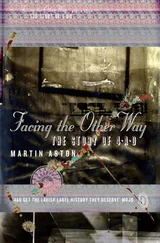“I should be the last to deny,” said Jocasta Fiske-Purefoy, “that Deirdre has always been a most difficult child. So different from Millie, in spite of having the same upbringing. One is obliged, I fear, to speak of heredity.” Whether it was some remembered characteristic of her deceased sister Lalage which imposed on her this distasteful obligation, or of Lalage’s equally deceased husband, it was impossible to tell.
“There’s absolutely no crisis,” said her granddaughter firmly, “and nothing to get cross with poor old Dreary about. If you’ll just let me explain—”
Looking once more from the window, I had for a moment a sense of déjà vu, for again the substantial figure of Tancred was leading a little group of people towards 62 New Square, and as before two of them were tall, the third by comparison diminutive. On this occasion, however, the smallest of the group did not by any means trail unregarded behind the rest, but seemed on the contrary to be the center of affection and interest. She had little obvious claim to be the focus of admiration: a bundle of mist-colored tweed and jersey, her hair a wispy cloud of blond and gray — middle-aged, there could be no gainsaying it; but her step was as quick and light as a young girl’s, and she still had very pretty legs. The solicitor, half turning from time to time to look benignly down at her, had none of his former harried look: she had restored him, it seemed, to that confidence in his own superior judgment which is so necessary to the professional adviser. Between the two other members of the little party, who walked protectively on either side of her, there was as perfect a similarity as is possible between a muscular young man and a voluptuously built young woman; their copper-colored hair and creamy white complexions would have enchanted a pre-Raphaelite artist; their look of robust health and exuberant spirits would have been his despair.
This then was Dorothea Demetriou, the youngest daughter of Sir James Remington-Fiske: difficult as it was to believe that she and Jocasta were sisters — it hardly seemed possible in nature that the bundle and the battle-ax should be offspring of the same union — I could have no doubt of her identity. The copper-haired twins, by the same token, must be Lucinda and Lucian Fairfax, the children of her first marriage. Their entry into the waiting-room was the occasion for much embracing and enthusiastic welcome.
“We’re not terribly late, are we?” said Dorothea, a little breathless, her words tumbling over one another. “We’ve been rushing about all over the place, trying to find some clothes to look respectable in. We had to break all sorts of speed limits coming down from Hampstead — well, Lucian did, Cindy and I just kept our eyes shut and prayed.”
“You’re not a bit late, darling,” said Camilla. “It’s simply sweet of you all to bother.”
“Oh Millie, we couldn’t let them make you pay all that horrible tax, of course we couldn’t. But isn’t it lucky we’re in London? We meant to stay in Corfu until next month, because Costas can’t leave until then, but we decided to come over early and have an export drive. I make Greek pots, you know, Mr. Tancred — plates and bowls and ashtrays and things, just like the ones the archaeologists dig up, but not so cracked. They’re rather nice — you must come up to Hampstead and see them.”
“That would be delightful,” said the solicitor gallantly.
“So we’ve come to London to tell Harrods and people how nice they are and get lots of orders. The only thing is, I don’t know if Leon can get here. I rang his headmaster and said it was frightfully important — family fortunes hanging in the balance and everything — and he said he’d send Leon up to London if he possibly could, but he was out on some sort of binge — Leon, I mean, not the headmaster — and the headmaster didn’t know when he’d be back. But Mr. Tancred says it doesn’t matter, because of him being under age — Leon, I mean, not you, Mr. Tancred.”
“Quite so, Mrs. Demetriou,” said the solicitor with rotund benevolence. “Since Leonidas is only seventeen, his consent is legally valueless.”
“But if it doesn’t matter what Leon says, why’s it different with Deirdre? She’s not twenty-one for ages.”
“Dolly darling, people come of age at eighteen now,” said Camilla. “They changed the age of majority in 1969.”
“But Deirdre isn’t eighteen — she was seventeen on her last birthday, wasn’t she?”
“Her eighteenth birthday,” said the solicitor, “occurred three days ago.”
“Oh no, it can’t have done,” said Dorothea with tragic dismay. “We haven’t had a party, or given her a present or anything. Jo, it wasn’t really, was it? You’d have reminded me.”
“My dear Dolly,” said her sister, “had I remembered it myself, I should certainly have reminded you. But I do have other things to think about, you know, especially with Mother so unwell. I’m afraid that Deirdre’s birthday, which is perhaps not one of the most significant events of the decade, escaped my recollection. I really think she’s old enough not to make a fuss about it.”
“I ought to have remembered,” said Camilla. “But I have had a frightfully heavy term — I’ve been simply snowed under with lectures and tutorials. I do feel rotten about it, though — poor old Dreary, no wonder she’s feeling a bit bloody-minded.”
The members of the family now gathered in the waiting-room all seemed to be on terms of mutual affection: Deirdre being absent, harmony prevailed. The only exception that I could detect to this was a certain… absence of sympathy, perhaps no more than that, between Rupert Galloway and the Fairfax twins.
They had not met, apparently, for several years: it was in Corfu, I gathered, that the twins were generally reunited with their cousins — Camilla and Deirdre spent most of their holidays there; but Rupert did not accompany his daughter on these visits. Lucian and Lucinda, when he last saw them, would have been little more than schoolchildren: with the uneasy joviality natural to such an encounter, he remarked on how they had grown and inquired what they were doing these days.
“Lucian writes, I paint,” said Lucinda. “That’s our story anyway — and we usually stick to it.”
“We don’t want Father to think we’re layabouts, you see,” said Lucian. “We’re quite keen on him approving of us.” Remembering that George Fairfax was a successful merchant banker, I supposed that his approval might have a more than sentimental value to his offspring.
“Quite right, my boy, so you should be. Fine man, your father. I run across him from time to time, you know. Yes, he’s a shrewd chap, is old George, I’ve got a lot of time for him.”
“I’m sure he’d be very pleased to hear that,” said Lucian. “We know how much he respects your abilities as a businessman, don’t we, Cindy?”
“Nice of you to say so,” said Rupert, apparently perceiving no ambiguity. “But I’m not in the same league as George, of course. Just a modest flair for investment, that’s all I can claim to have, and not always the money to back it up, unfortunately. Well, we must try to keep in touch a bit more — always glad to see you both, you know, any time you’re in London.”
“We were in London in the autumn,” said Lucinda. “We thought of coming to see you. But we weren’t sure if you’d be pleased.”
“I’d have been delighted, my dear. You should have rung me.”
“We thought you might be tied up with all sorts of high-powered financiers, and so on,” said Lucian. “We don’t really move much in that sort of circle, you know. We thought if we turned up on your doorstep wearing the wrong clothes and talking in the wrong accents you might be frightfully embarrassed.”
Читать дальше












